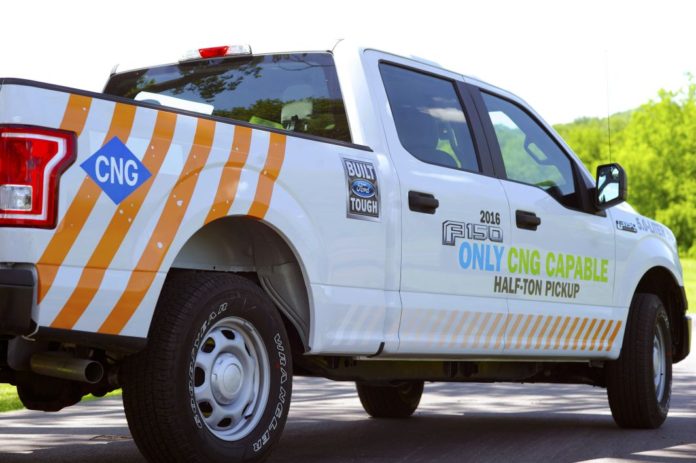Natural gas is the No. 1 alternative transportation fuel in Texas in the forms of compressed natural gas (CNG) and liquefied natural gas (LNG). Texas leads the United States in natural gas production, energy innovation and natural gas fueling. We have an abundance of this clean-burning fuel. It provides an affordable alternative for combustion engines in passenger vehicles, heavy-duty trucks, marine vessels, locomotives, oil and gas operations and mining equipment.
Abundance: Texas produces 18.84 billion cubic feet (BCF) a day of dry natural gas, more than any other state in the union. If it was a separate country it would be the third-largest producer after the rest of the United States and Russia. This provides an exclusive opportunity to develop the markets, supply chain and supporting infrastructure and to leverage this advantage.
Expertise and Innovation: Texas is home to the leading natural gas experts in the world. We are leading innovation that will significantly reduce fuel costs, improve the environment and comply with ever-changing regulations. Broad groups of stakeholders including liquefaction plants, storage equipment companies, fuel retailers, compressor technology companies, shippers, engine manufacturers, utility companies, oil and gas producers, truck manufacturers, engineering companies and others are collaborating to develop new and improved technologies and streamline fuel delivery services.
Pricing: Natural gas is priced at a gasoline gallon equivalent (GGE) or diesel gallon equivalent (DGE) based on the energy level of the fuel it is replacing, providing the same miles per gallon. Pricing is steady and consistent. The price for compressed natural gas at Love’s in Fort Worth has stayed at $1.99 per GGE for over a year. To learn more about stations and prices near you, go to cngnow.com or download the app for your phone.
Natural gas fuel prices in the future will go down. Current prices are artificially inflated when compared with gasoline or diesel. A high percentage of the fuel cost is going to marketing, profits and, most important, the initial capital investment on fuel station development. As pricing becomes more competitive, additional cash flows are captured (i.e. related services, maintenance) and capital expenses are recovered, prices will be lower. It takes about five years for payback on a $1.5 million station investment.
Price Stability: With the commodity portion of natural gas fuel at a substantially lower price than crude oil for gasoline, the spot price of natural gas could double and it would have a relatively small impact on the total cost per GGE. Building more stations now provides a steady alternative when oil prices spike and affect the daily cost of gasoline and diesel.
Texas Proud: With an abundance of natural gas, innovation and lower prices, we will see unprecedented numbers of engines fueled by natural gas on the roads, in the oil fields, in the ports and on the train tracks in Texas. Look for the blue diamond sticker for CNG or LNG on the bumper or tanks on school buses, refuse trucks, taxis and large tractor trailers on the roads and know that cruise ships, mining equipment and other large engines will also be burning cleaner, affordable Texas natural gas.
Lynn Lyon is president of EnergyConnects. She spent six years on the board of directors of NGVAmerica and served as the national chairman for America’s Natural Gas Association’s Transportation and Equipment Committee. She led the development of the Texas Clean Transportation Triangle that built out the state’s natural gas fueling infrastructure and positioned natural gas as the leading alternative fuel in the state. As director of fuel market development at Pioneer Natural Resources she led a natural gas fueling program that converted corporate fleet vehicles, drilling rigs, hydraulic fracturing and mining equipment. EnergyConnects is teaming with The Energy Institute at Texas Christian University on an economic study that assesses the potential for natural gas fueling statewide in the next 10 years. For more information on natural gas fueling follow @EnergyConnects on Twitter.





